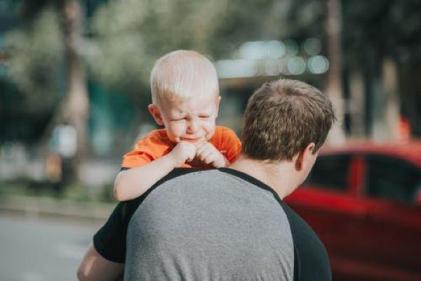Fear of the dark is highly common among toddlers, but it's also a sign of your child's developmental progress.
With the growth of a toddler's imagination, they find it difficult to separate fantasy from reality at such an early age. That's why when the lights go out, they lose their grip on what's actually there.
Even some adults find the darkness a little anxiety-inducing, but to a little youngster it can be downright terrifying. Things that go bump are pretty much always at night, aren't they?
Toddlers have longer memories than babies, so any type of negative experience at this age can possibly trigger a longer-lasting fear.
Considering the lack of distractions at night for a lone toddler, their mind can run rampant with phobias like fear of the dark.
Children live a life rich in fantasy, and can even believe that the monster they've read about in their latest book or a creature they've seen in on-screen can turn up at any moment in their bedroom.
They can also develop a fear from a sibling, and often imitate their brothers or sisters when it comes to learning what to be afraid of. Children can also become insecure when a big change happens in their life.
Sources of fear may change as a child develops. Separation from a loved one can cause seemingly sporadic anxieties to take shape, or moving house to a brand new environment.
Fear can be a good thing; it keeps us from harm and alerts us to danger.
However, when these fears aren't threatening and can negatively impact our little one's lives, there are tactics to try and reduce their fear.
According to the Better Health Channel, certain children may even be more susceptible to fears than other kids. Contributing factors include;
Genetic susceptibility, having one or more anxious parents, overprotective parenting and stressful events like injury or grief. This can induce generalised anxiety.
Some children are more sensitive in their temperament, and a dependent child is more likely to feel helpless. Children learn by watching those around them, so your own fears may have influenced theirs.
A fear of the dark typically begins around the age of two, although it can persist at any age. Many youngsters are engrossed in their own colourful worlds, and can grow out of these fears in a matter of months.
There are also numerous strategies to help hone in your toddler's vivid imagination, and self-soothe for security at night. At times, forcing them to confront their fear will only make matters worse.
It's massively important to treat our child's fears with understanding and empathy. Take them seriously, above all else, but don't allow them to feel that you're more afraid than they are.
Accept their fears as real, and respect them. Ask them to describe exactly why they're afraid, and show your child that you understand but don't share their fears. Reassure their safety with logic.
It may help to show your little one the safety measures around the house, such as locks. Ask your child about anything that might make them feel more secure.
One issue with leaving lights on, as clinical studies demonstrate, is light directly affects the brain's inner clock and delays sleep onset according to Psychology Today.
The brain interprets light as a sign that it's day-time, and can hinder your toddler getting some shut-eye, but they may find comfort from a very low-intensity night-light or a special toy or comforter in bed.
Their fear of the dark may have stemmed from other worries, and the dark is simply the mask your toddler's fear wears.
Talk honestly about serious issues they may be anxious about, which most likely get worse when they're alone in the dark.
Offer suggestions yourself. Perhaps they would feel better if they took a special toy or comforter to bed. Establish a bed-time routine that relaxes them, such as a nightly reading session.
Predictable routines often reduce anxiety for many people. Source of light can also put them at ease. Give your child a level of control, by placing a lamp by their bedside which they can switch on themselves.
It's also important to make sure that whatever they're reading, listening to or watching is age appropriate. News footage, horror movies or scary books can be frightening for younger people.
See things from their perspective. Check if there are any images or shadows in their room which may appear creepy in the darkness. Don't make fun of your child's fear in front of anyone else, or at all.
Belittling their fear can cause more anxiety about the impossibility of getting over their fear, and can make them feel alone. There are numerous books available for managing childhood fears which are also a great resource.
Reinforce positive behaviour by allowing your toddler to make small steps towards overcoming their anxieties. Compliment them on their growth.
There is also professional help out there if your child's fear of the dak is interfering with their daily life and play. If they are especially burdened with phobias, they may need the extra help from a specialist.












